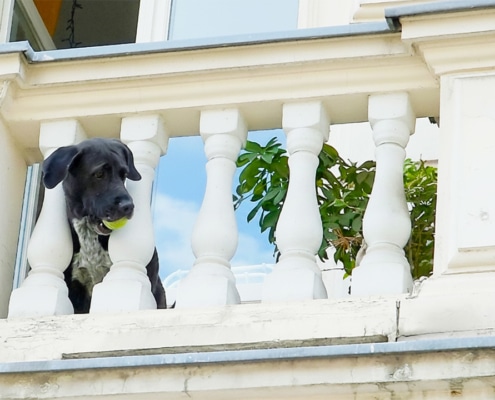Companions for Courage
Think on this, you are expected to go to court to give evidence against someone who has wronged you. This individual may have harmed you physically, emotionally and threatened you so overwhelmingly that you remain in terror for your life. The thought of facing this person in a courtroom is frightening. You will have to face questions from prosecutors but what is an even more terrifying prospect is being cross examined by the defence counsel. You, however, are an adult, a grown up, a mature person, you are expected to conquer your fears, get a grip and do the right thing. If we don’t do what is right then the justice system will eventually grind to a halt and criminals will be free to carry on with their nefarious, despicable behaviour with impunity.
Well that’s all very well but what if you are a child? If this prospect is so dreadful for us how do children cope? A USA courtroom is an intimidating place. It can appear an austere, unfriendly place. That being the case imagine how intimidating is an English courtroom with lawyers wearing wigs and gowns and a judge resplendent in red and ermine sitting up high.
When you are young life should be about the simple enjoyable things in life like dolls, cartoons, jelly and ice cream. For most children the scariest thing they have to cope with is homework or an unsympathetic teacher.
Companions for Courage charity
Well in the USA hope is at hand. In a scheme started over 20 years ago by the charity Companions for Courage a dog is provided to assist not only children but adults with learning difficulties. This facility has now been extended to the majority of American states.
From the moment the child arrives in the court house the specially trained dog is waiting, walks with them to the witness box stays with them as they answer some of the most horrible questions that they will ever have to answer, as they relive the horrors that they have endured. It is now a recognised fact that if a child is forced to confront an abuser facing what they perceive as a hostile end they won’t testify, what’s more even if they do testify without a dog their testimony is often ineffective.
In Seattle USA in 2003 in a landmark case the presiding judge allowed twin sisters to be allowed the company of a yellow Labrador called Jeeter with whom they had developed a strong relationship. The judge decided that in order to get the children to testify, using a dog as a comforter was no different than the use of a teddy bear or a toy. The case involved abuse by their father which so distressing for the girls that they were unwilling to speak in court. At the prosecutors suggestion the judge allowed the dog into his court. This of course led to an appeal on the grounds that the presence of the dog influenced the guilty verdict. Since that day almost every individual case where the verdict was guilty the appeal centred on the effect the dog had on the verdict. The lawyers, desperate to win have even questioned the colour of the therapy dog, arguing that certain colours can create an impression of guilt or innocence, the colour that causes the most problem is black. Fortunately all relevant research shows neither the appearance or the colour of the dog has influenced the jury.
A prime example of this type of therapy canine is Karl the boxer. Now Karl is no ordinary boxer, he is a white boxer who if deaf. Now the boxer is an unlikely breed to be part of this type of therapy. Boxers tend to be wildly enthusiastic dogs, full of life with a penchant for going through obstacles instead of going round. Their infectious rumbustious style is usually at odds with the special needs of a child giving their side of the story.
The ideal court companion
Not being able to hear of course is a great advantage for this type of dog. They are not affected by any noise therefor remaining totally calm and relaxed thus ensuring that the young person that they are there to assist remains as stress free as possible when giving evidence. Its not just children that benefit from therapy dogs In court. In one of the most difficult cases a woman with learning difficulties who was giving evidence about the abuse she received was given access to Karl. The defence team allowed the presence of the dog on the understanding that she did not stroke the dogs head and the dog was kept out of sight of the jury. It has since transpired that the lady kicked off her shoes and stroked Karl with her feet!
Such is the effect that these dogs have, the charity tries to make it possible for the children to have some access to the dog for the rest of the animals life.
Yet another way we are making use of the incredible talents of our best friend and maybe an example to the rest of the world.
“Dogs never talk about themselves but listen to you while you talk about yourself and keep up the appearance that they are interested in the conversation.”
Anon






